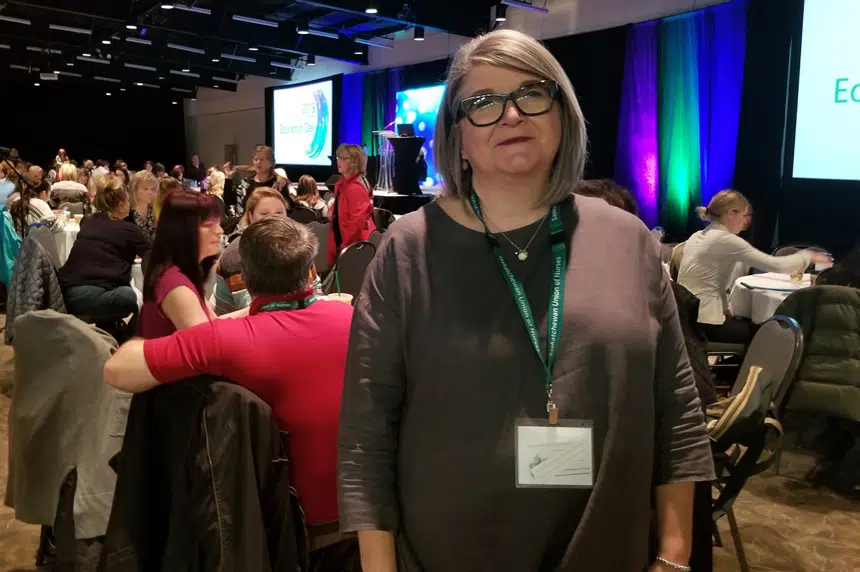The president of the union representing Saskatchewan’s registered nurses says she’s hoping a new documentary series helps change people’s perceptions around opioid addiction.
“They think (addicts) are a certain kind of people from a certain kind of background, from low socio-economics when, in fact, that’s not the case at all,” Saskatchewan Union of Nurses (SUN) president Tracy Zambory said Tuesday ahead of the union’s annual general meeting in Saskatoon.
Zambory said her own family is an example of how addiction can happen to anyone, regardless of circumstances — her youngest son is a recovering opioid addict.
“We are living proof of that. It could be you, it could be me,” she said. “It could be your next-door neighbour, it could be your teacher. It could be, you know, the lawyer that you visit, the librarian for goodness sakes.”
She said her son started using cannabis and eventually cocaine in high school. By 2010, he had moved on to opioids.
“We could tell that something was wrong. But in the spirit of being an enabler and being in denial, we just tried to put it off to other things,” she said.
By 2012, her son finally admitted he had a problem. But he didn’t seek help until 2018, with the help of his partner.
“He is now in the methadone program and doing great,” Zambory said.
Zambory shared her story ahead of the premiere of a new four-part documentary series released online by SUN.
The series, which is titled On the frontline of Addictions & Opioid Crisis, is split into four parts ranging from six to 11 minutes long. It focuses on healthcare workers, addicts, law enforcement personnel and others whose lives are touched by the increasingly common problem of opioid addiction in Saskatchewan.
Zambory said she hopes the series helps people recognize that opioid addiction has reached the crisis point in the province. She called for more treatment beds and resources as part of a harm-reduction approach to the problem, including safe injection sites and needle exchanges in order to reduce overdose deaths and the transmission of diseases like HIV and hepatitis.
“We have to have an open and honest discussion. We have to put our moral judgments aside. We need to meet addicts where they’re at,” she said.











